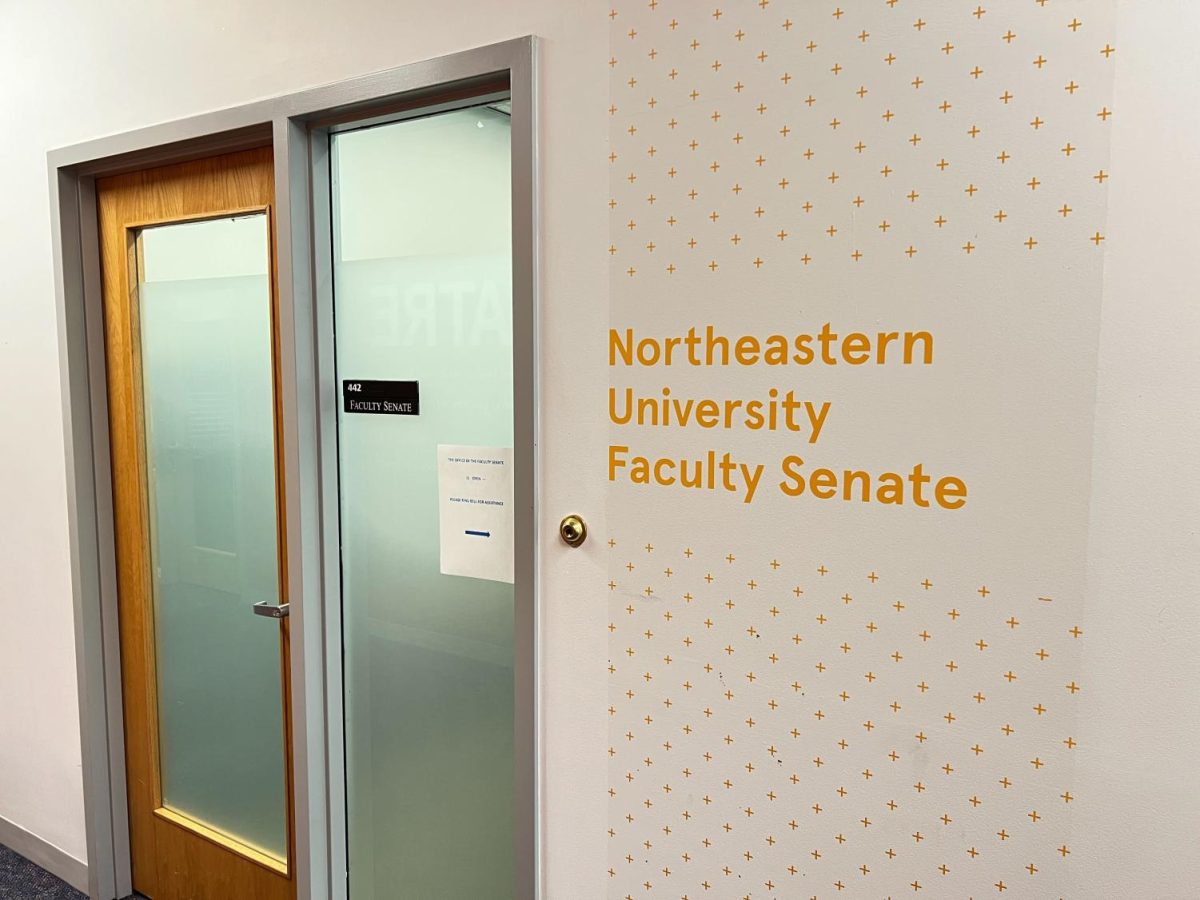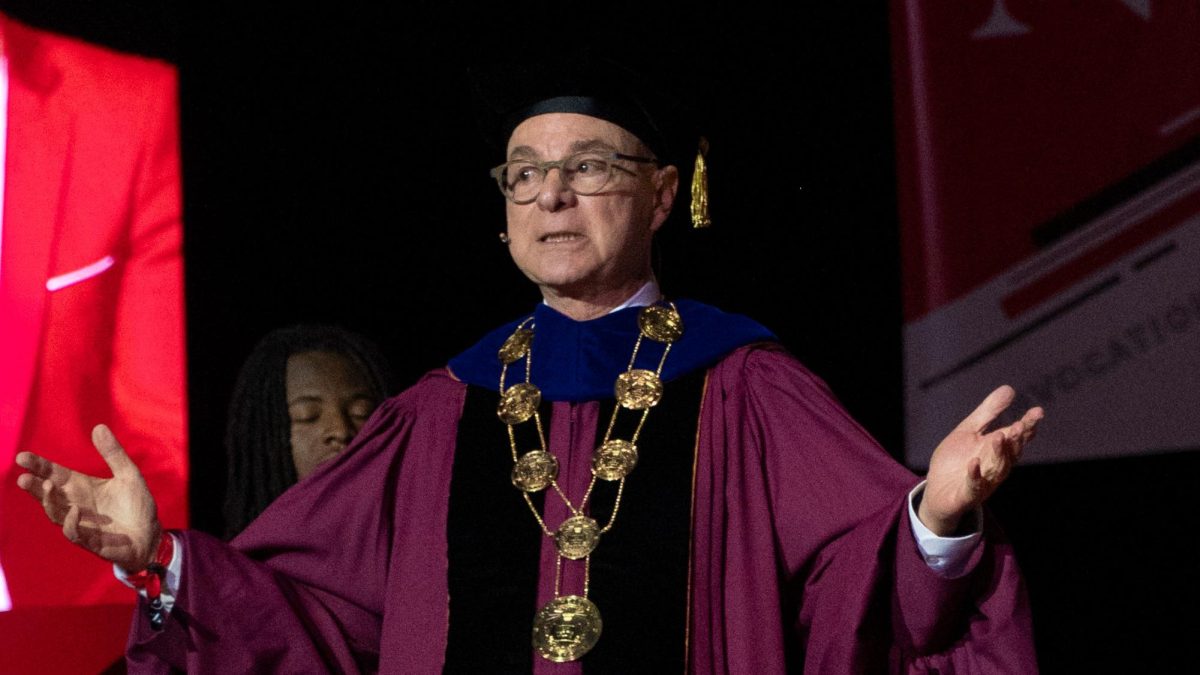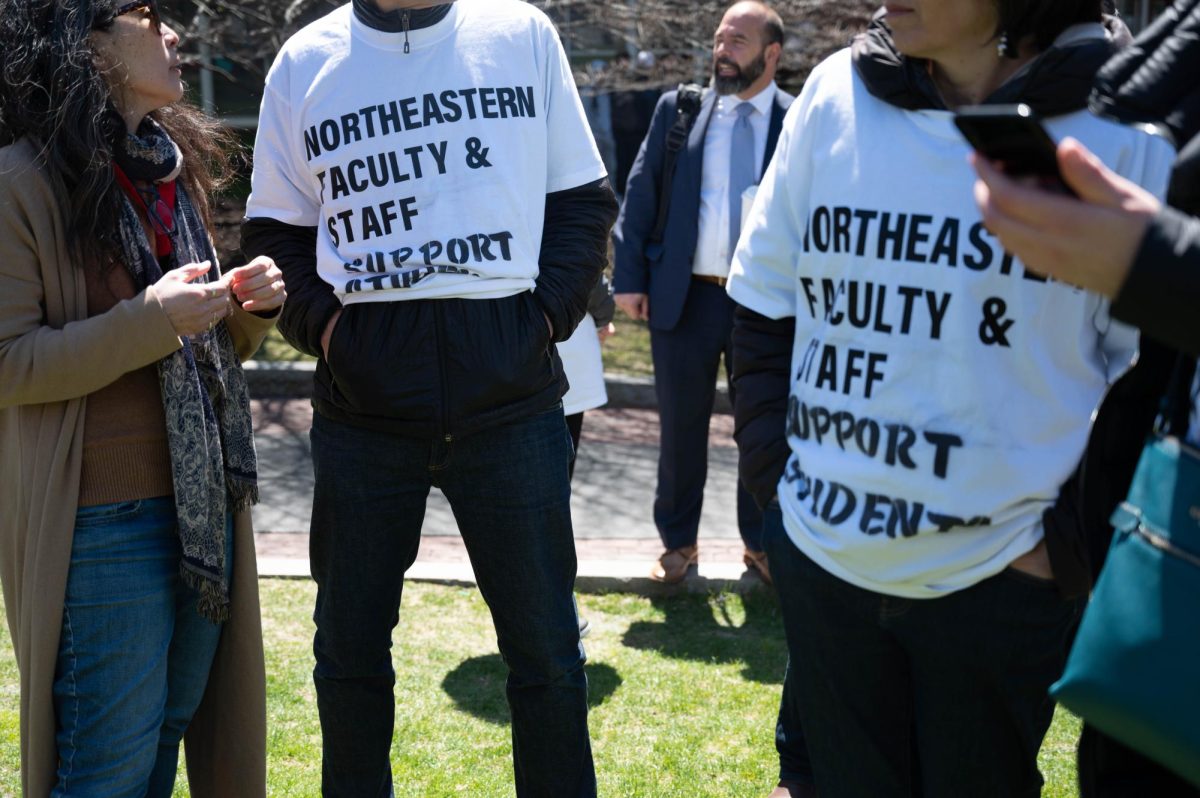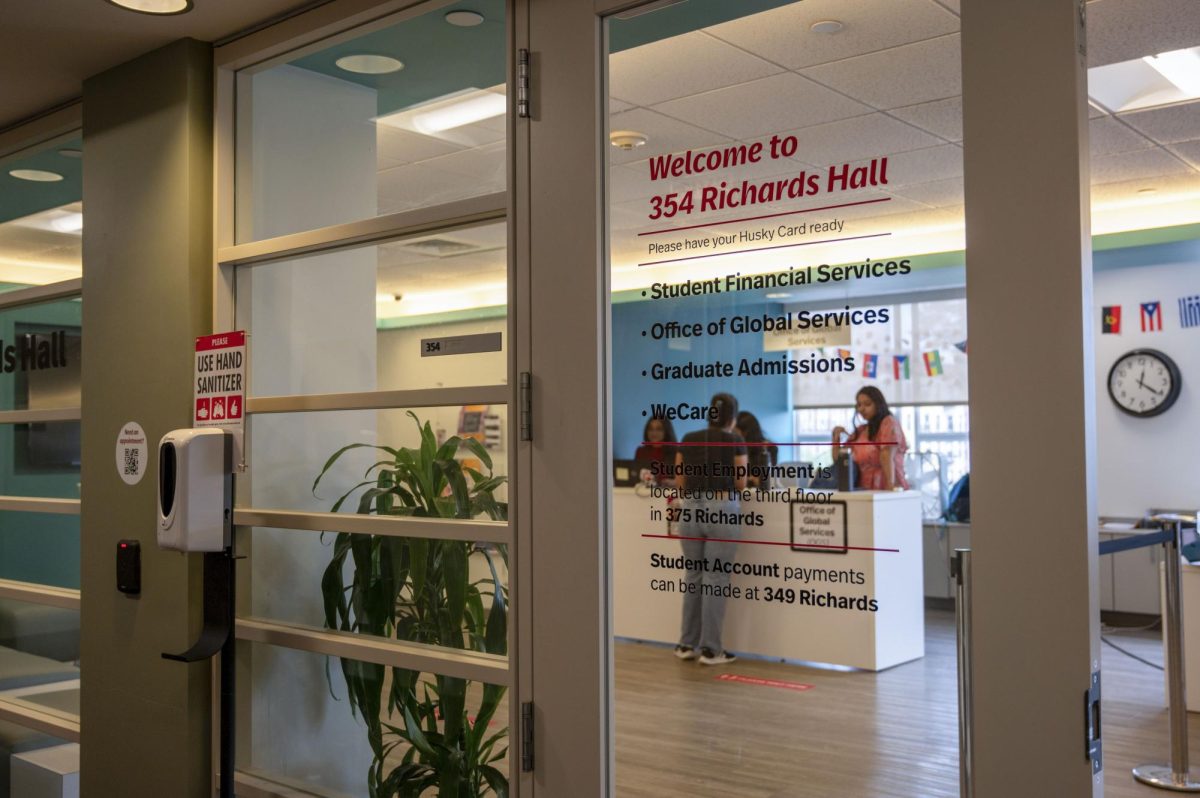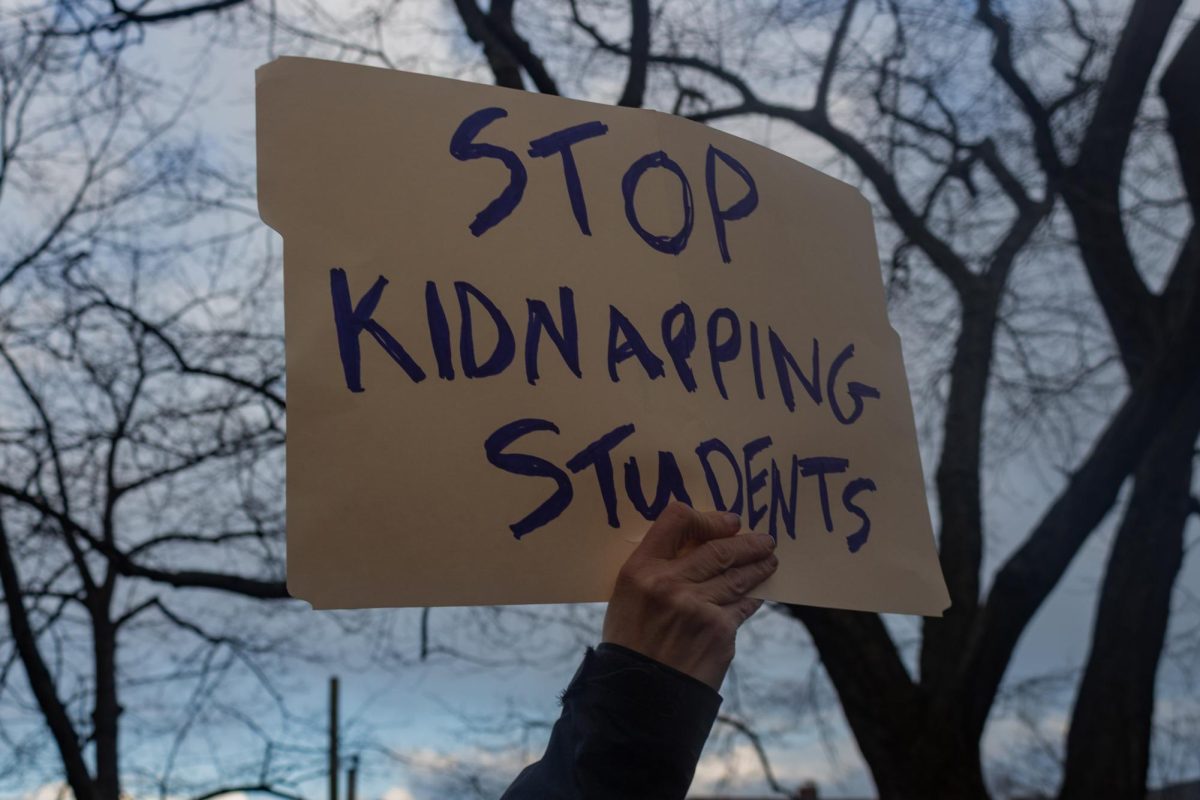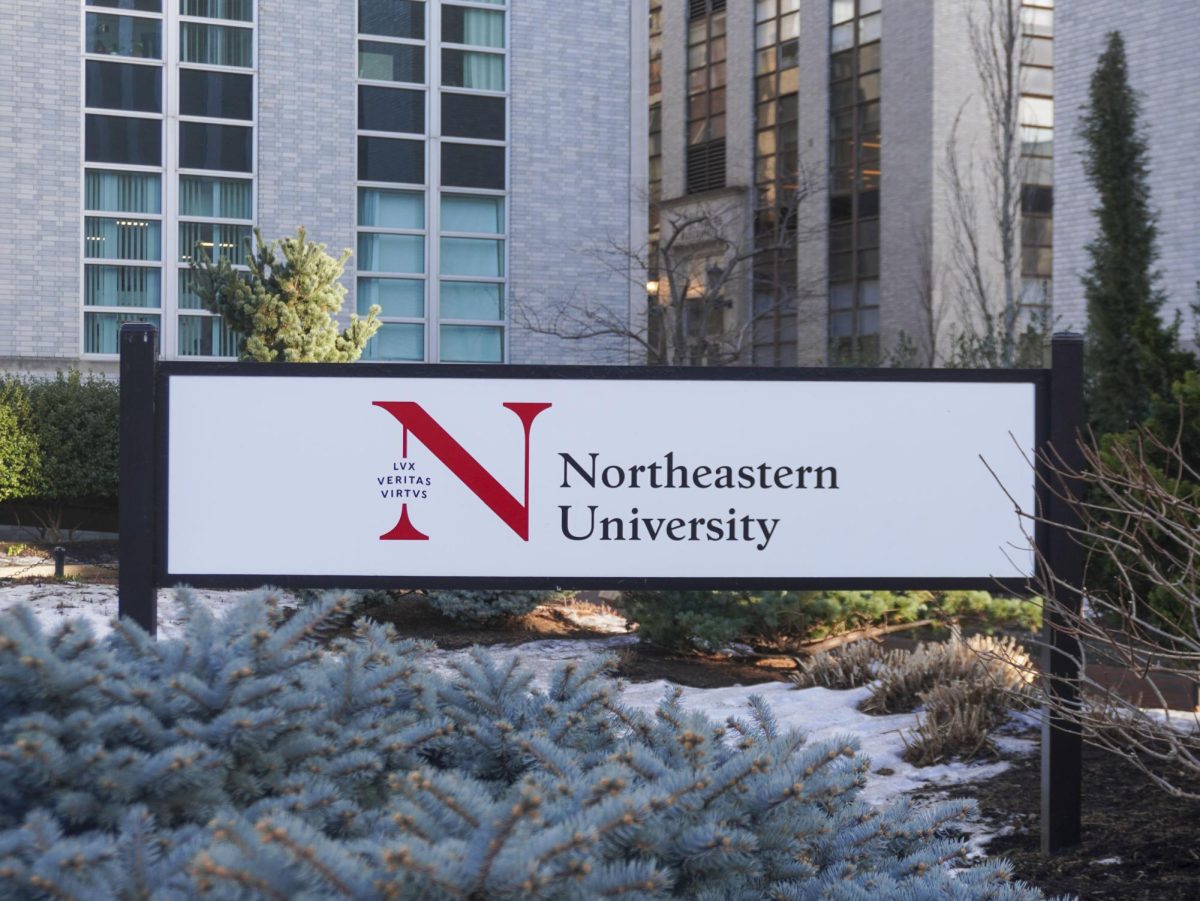Northeastern’s operating revenue continues to grow at a significantly faster pace than other private universities across the country, and the university remains in good financial health, according to Senior Vice President for Finance and Treasurer Thomas Nedell’s presentation to faculty late last month, which detailed the financial state of the university.
Nedell’s annual presentation to the faculty senate Jan. 31 also included discussions of shifts in financial aid grants and faculty questions about divestment from fossil fuel companies.
Provost and Senior Vice President for Academic Affairs David Madigan announced that the school will no longer hold virtual snow days going forward, instead shifting to “old-fashioned” snow days with canceled classes. The policy aims to ease the burden on faculty members who are responsible for their children on days that local schools are closed, Madigan said.
Nedell addressed a resolution that the faculty senate passed in 2021 asking the university to divest from fossil fuels within two years. Because an external firm manages the endowment, a faculty member asked if the university could direct that company to invest in “green funds” moving forward, even if individual stocks cannot be removed.
In 2014, over 75% of Northeastern’s student body voted in favor of divestment, a referendum renewed in March 2023.
“That’s not to say there aren’t vehicles to be able to invest in sustainable, focused investments, and Northeastern has done that,” Nedell said. “Given the size of our endowment, the university back in 2014 set a bit of a direction, saying we want to invest where we can without disrupting the approach to long-term returns.”
In 2016, the university pledged to invest $25 million of its endowment fund in environmental sustainability, a number Nedell reported has since climbed to $50 million. This is focused largely on research which he believes will be more impactful on the environment in the long-term.
Since 2006, Northeastern’s operating revenue has more than tripled, with an average growth rate of 8.1%. Nedell said this is much higher than the growth rate of all other private universities, which have seen only an average growth of 5.5%.
Two other areas that have seen significant growth since 2006 are research awards and philanthropy. Philanthropy increased to $120 million in 2023 from $99 million the year before and is expected to continue to increase in the coming years, according to Nedell. Now at over $281 million, research grants and funding have been a significant focus of the university’s academic plan, “Experience Unleashed.”
“This is why we are building new facilities, such as EXP, to be able to house and enable this growth in our research,” Nedell said. “As an institution, [this] increases the impact that we can have out in the world.”
One of the most important figures in assessing a university’s financial health is its endowment, a compilation of investments the university, or a third-party company, manages to fund the institution’s goals.
“That endowment creates a spinoff of funds that supports the operating budget … last year it was $48 million,” Nedell said. “That number … is just over 2% of our operating budget … [some schools] depend on upwards of 40% of their total operating budget coming from their endowment.”
In his presentation to the senate in November 2022, Nedell revealed a net tuition revenue of $1.28 billion. This figure rose by 17.5% to $1.45 billion in 2023. This revenue comprises tuition from 60% undergraduate and 40% graduate students.
“As we think about Northeastern’s model, which is largely a tuition-dependent model, we have to know what our strengths are,” Nedell said. “That has been — for many years — an institution that is dependent on, in a good way, the educational model and not an endowment or philanthropic dependent model.”
Robert Triest, chair and professor of economics, asked about how financial aid will keep up with rising tuition, specifically for low- to moderate-income students. Northeastern undergraduate tuition increased 4.6% to $59,100 in the 2022-23 school year, according to an article by Northeastern Global News, or NGN.
“From an access perspective, we are serving a higher percentage of Pell [Grant] students today than we were several years ago,” Nedell said. “Aid has continued to go up. We try and target those who need it the most and not give away dollars for just vanity scholarships.”
Northeastern’s freshman Pell share is reportedly 13%, lagging behind the national average of 21%, according to an article published by The New York Times Sept. 7, 2023, analyzing the share of students who receive Pell Grants, or federal grants provided to students among the bottom 50% of income distribution.
According to NGN, Northeastern students’ average debt has dropped 47% over the past 10 years and 50% of students graduate with no debt.
“Over the last seven or eight years, there has been a steady decline in the average undergraduate borrowing rate of federal dollars,” Nedell said. “That downward trend has been very intentionally curated because we are very focused on the burden of what we leave students with when they leave us.”
Nedell delivered a series of project updates to the senate about several large real estate developments being completed.
Nedell reported that EXP, one of Northeastern’s newest research and academic buildings in development since 2012, was delivered on time and within its projected budget.
However, the $400 million figure given in his project update was $100 million more than what The News previously reported the budget was originally slated to be.
The next update was an expansion of the Roux Institute that only just began the board approval process in December. At approximately 235,000 square feet, the proposed new $450 million building at the Institute’s campus in Portland, Maine is slated for completion and occupancy in July 2027. The expansion will move Northeastern out of rented space and into a more permanent physical location. Funding will comprise $250 million in philanthropic contributions from the Roux family and the Harold Alfond Foundation and $200 million in investment from the university.
“The real purpose of this [financial report] is to reassure folks that we are in a strong position to pursue and achieve the objectives of our academic plan,” Nedell said. “Financial health, like academic quality and leadership, are essential in us achieving our goals.”
Nedell’s office puts out an annual letter detailing financial updates to the public with these figures and others detailing specifics about Northeastern’s financial position.
The senate meeting concluded with a short presentation from Diane Levin, the university ombuds, who is responsible for recording and fielding confidential complaints from members of the community. Since July 2023, the ombuds office reported 236 actual or potential risks to the university, largely regarding employee retention. Other reported concerns involved negative publicity, litigation potential and breach of policy/ethical code.
The senate will convene for its next meeting Feb. 14 where President Joseph E. Aoun will give his annual address to the body.



